NGC says demand rising, users say no real savings: Has CNG drive run out of gas?
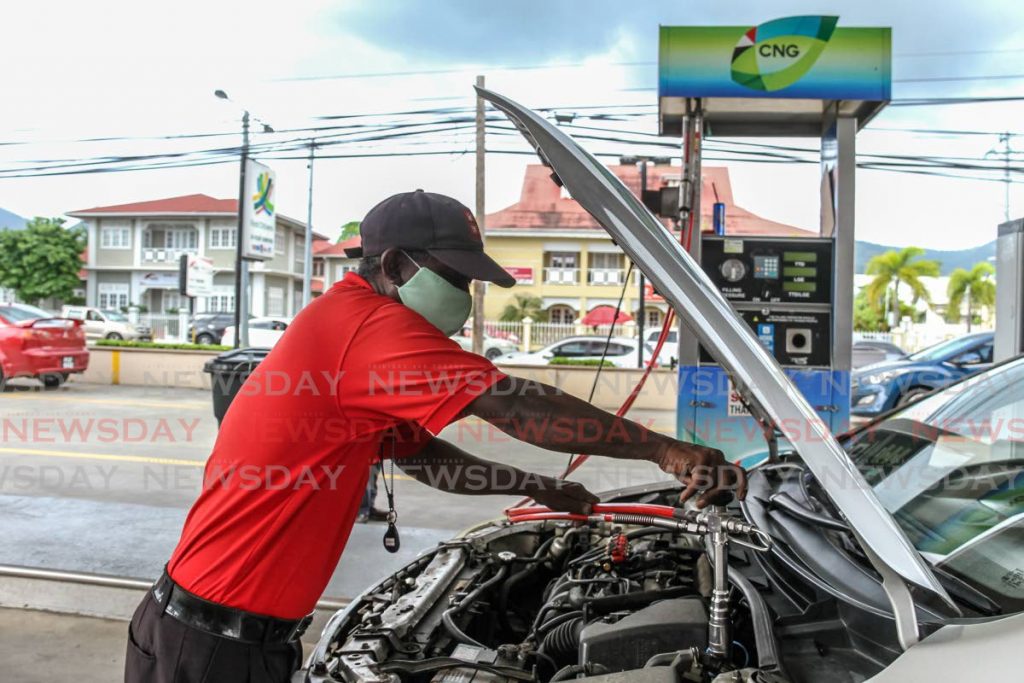
Compressed natural gas (CNG) has been dubbed by many in the energy sector as “the transition fuel” for Trinidad and Tobago, because of its accessibility and its low carbon emissions.
As oil and gas goes the way of the dinosaur, the fuel was supposed to drive TT to the future with the National Gas Company (NGC) at the wheel – promoting and supporting a CNG industry that would see conversions of gasoline-burning cars, buses, maxi taxis and trucks, as well as the introduction of brand-new CNG vehicles.
The initiative is also supposed to drive TT to reduce its carbon footprint, especially since it has been marked as one of the top ten producers of carbon dioxide emissions over the past decade.
But since NGC began its drive to convert the country to CNG, it is arguable that not much has been done, with a mere 15,500 CNG vehicles on the road to date compared to hundreds of thousands of oil-burning vehicles, issues from several different bodies over the operating costs and overall costs of using converted CNG vehicles and emerging competition coming from electric and hybrid vehicles.
Questions now have to be asked – is it too late to convert TT to CNG? Would demand for hybrid and electric cars outpace the demand for CNG, and has NGC’s drive to convert TT to CNG run out of gas?
In the driver's seat
When NGC CNG assumed stewardship of the CNG industry in 2014, TT had about 1,522 CNG vehicles in TT. All of these vehicles, NGC told Business Day, were converted from gasoline burning vehicles to CNG.
In most converted vehicles there was still a need for gas since it is used to start the car, but overall performance of the vehicle would be dependent on burning CNG. Today, 90 per cent of the vehicles were converted from diesel and premium gas burning vehicles – the remainder were showroom models of CNG cars.
NGC CNG, in correspondence with Business Day, added that the country has gone from zero OEM (original equipment manufacture) model vehicles seven years ago, to more than 20 models spanning sedans and light, medium and heavy duty trucks, maxi taxis and buses.
The Public Transport Service Corporation Trinidad and Tobago, in correspondence with Business Day, added that about 71 of its buses utilise CNG – an average of 21 per cent of its fleet.
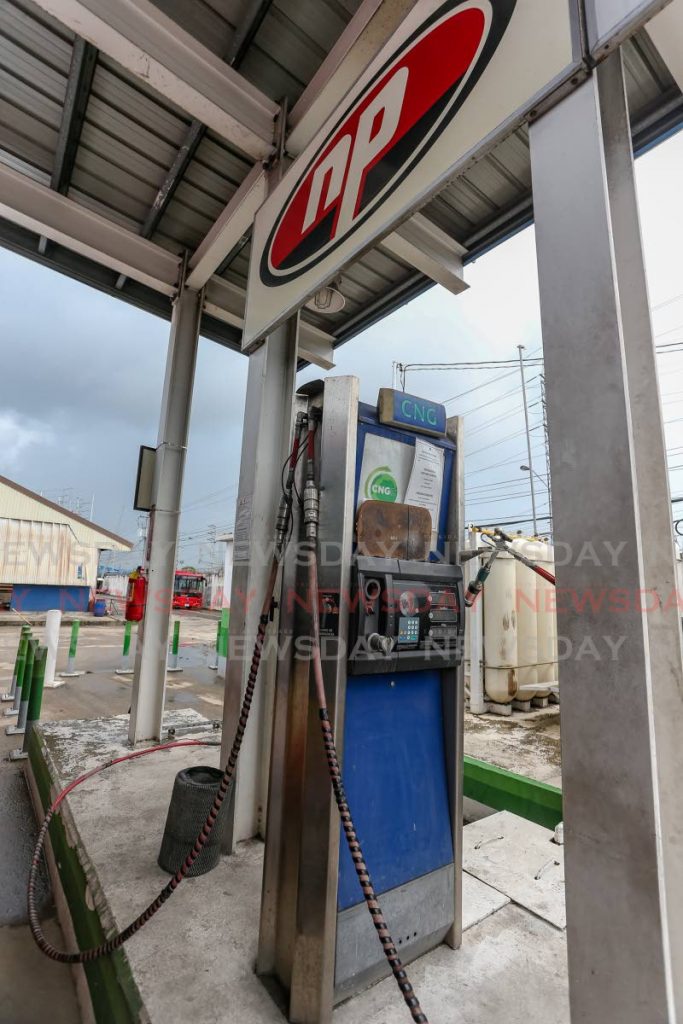
It added that it is in the process of considering a proposal to acquire 300 more buses, of which 240 will be CNG vehicles.
Through its automobile company – Routes Auto – maxi taxi associations have also imported 50 minibuses, which are currently on the road.
All of these vehicles are included in the total of 15,500 registered CNG vehicles.
The effect of the use of these vehicles, according to NGC CNG, is a notable reduction in CO2 emissions. It said that for the period January 2014 to July 2021, a total of 38,405 tonnes of CO2 were saved from being emitted into the atmosphere.
“This is the equivalent of taking hundreds of vehicles off the roads,” NGC CNG said.
However, according to the Ministry of Works and Transport, there are close to a million registered vehicles in TT. While it may be argued that the number of vehicles actually on the road would be considerably less, there is no arguing about the effect these gasoline burning vehicles have on the environment.
In 2020, TT was ranked second in the world for carbon dioxide emissions. The World Bank’s global carbon project which compiled figures from 2018 determined that each person in TT contributes 31.28 tonnes of CO2 emissions each year. TT emits an estimated 40 million tonnes of CO2 annually.
But NGC CNG is convinced that despite the disparity in numbers, it is contributing to clearing the air.
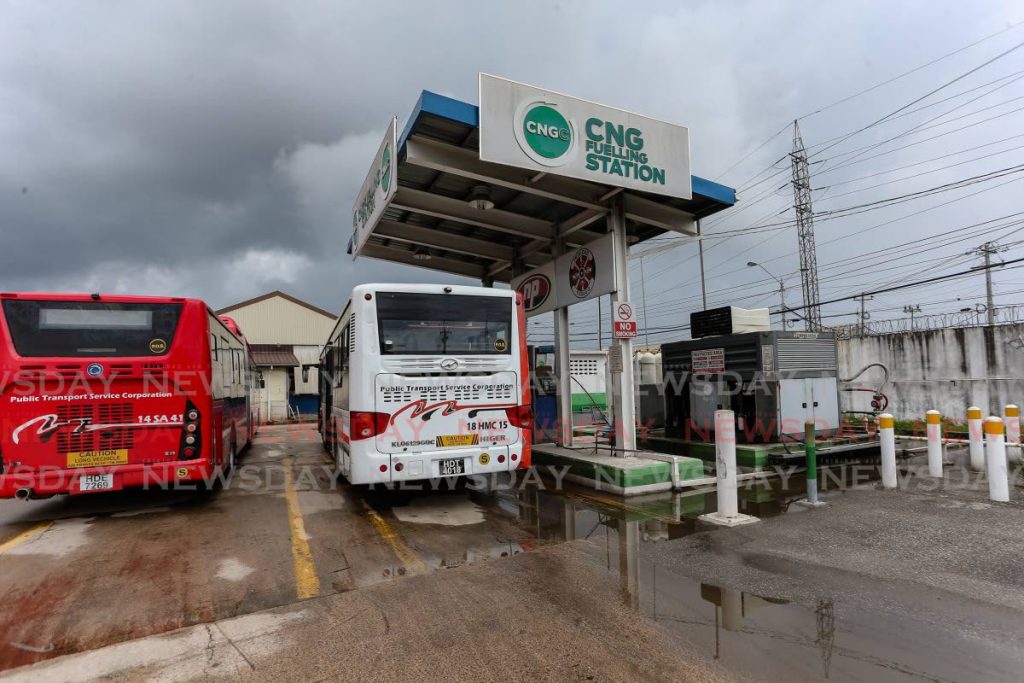
It added that the timeframe to reach its ultimate goal of 100,000 CNG-powered vehicles may still be a few years away but it would make a significant contribution to reducing emissions without having to buy new vehicles.
“Combustion of CNG in vehicles reduces CO2 emissions by approximately 30 per cent,” NGC CNG said. “One litre of CNG gives the same range as a litre of gasoline. Drivers who operate CNG-powered vehicles should be proud to know they are reducing particulate emissions and hence have a lower carbon footprint.”
“While we may not see it or breathe it, for every kilometre driven on CNG, we are helping to reduce emissions.”
CNG boost to the economy
Despite the small numbers, the state-owned company says the demand for CNG is increasing. It said, despite disruptions from covid19 which caused less driving and a temporary closure of the businesses of licensed converters, which resulted in less conversions, the demand for CNG has been growing by 25 per cent or better since 2014.
“In March 2021, before covid19 restrictions were introduced, our monthly sales were the highest ever since assuming the industry in 2014,” NGC CNG said.
It added that in 2019 sales for CNG increased by 106 per cent from the year before.
The interest was largely because of generous national fiscal incentives for the use of CNG. These incentives included no VAT, no motor vehicle tax and no duties on all imported CNG vehicles; tax rebates up to $2,500 for CNG conversion – which still exists; the facilitation of small loans for conversion and about 4,000 sponsored conversions between 2018 and 2020 for taxi drivers and private individuals.
“Currently there is a grant of either $45,000 or $75,000 for maxi taxi owners who dispose of their old diesel powered vehicle and replace it with a CNG alternative.”
NGC CNG said a gasoline to CNG conversion costs about $13,000. At $1 a litre for CNG compared to almost $5 for super gasoline, CNG is about 80 per cent cheaper.
“An individual’s savings depends on how much driving they do, but for a taxi driver, we calculate they can recoup their investment to convert to CNG in six months and a private individual can do so in 12-16 months.”
CNG vehicles need to be serviced once every 20,000 km – about once a year for most people. NGC CNG added that the use of CNG also extends the life of engine oil, so the intervals between oil changes can be longer if the consumer so determines.
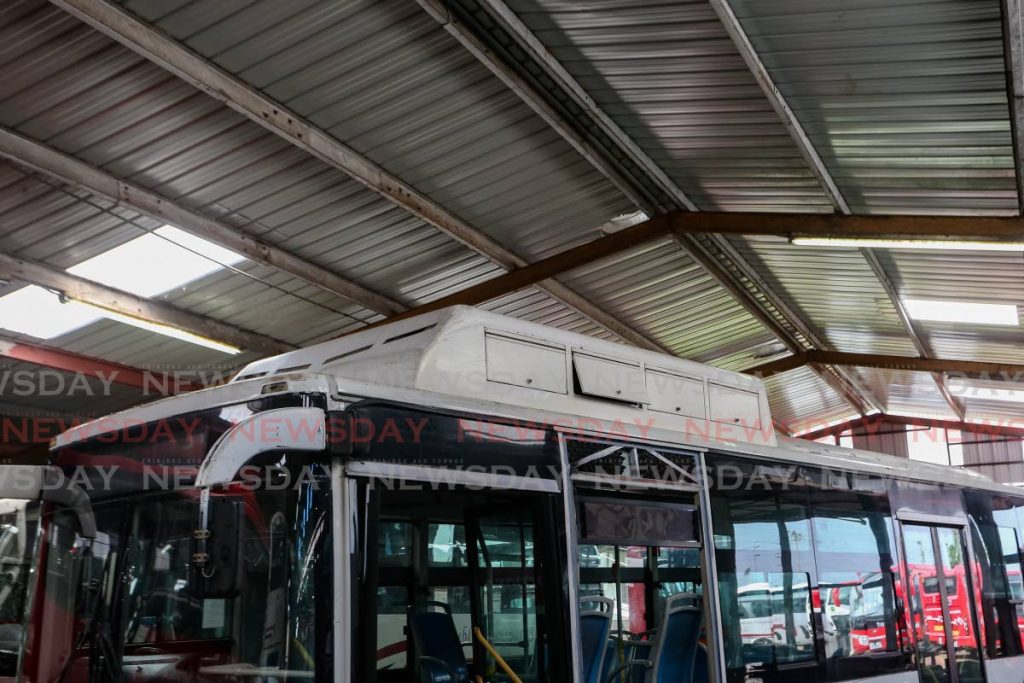
Commercial owners of cars that use CNG boast on a regular basis about the money they save after switching. One motorist who drives from south Trinidad to Port of Spain daily says he normally fills his CNG tank every other day, and spends less than $40 every time he fills up, as compared to over $100 daily when using gasoline.
But CNG does not only benefit motorists. NGC CNG said new vehicle dealers who sell OEM vehicles, licensed converters and also the Government which would now have less liquid fuel to import and less forex to spend, all benefit from the CNG industry and its returns.
NGC CNG estimated that over the last seven years more than a billion dollars in economic activity was generated by the industry.
It said it was confident that once the scourge of the pandemic passes and things return to normal it would continue to see returns.
Maxi taxi associations – CNG and diesel don’t mix
While commercial and private drivers, whose cars use premium and super grade gasoline boast of the benefits of converting to CNG vehicles, maxi taxi drivers, whose minibuses use diesel, say CNG and diesel mix as well as oil and water.
“You are not totally switching across,” said Linus Phillip, president of the Route One Maxi Taxi Association. “The problem with that is when you go to the gas station you would have to fill up at the diesel pump every day and go over to the CNG pump as well. So if you used to use $200 in diesel you would now spend $100, but you would have to spend another $30-$40 in CNG. So the savings that they said you would make, you aren’t really making.”
“Plus, with CNG, your maintenance costs a little more. When you factor in all these things, what exactly are you saving.”
Association members told Business Day that out of the 5,000 estimated maxi taxis in the country, only 50 are CNG bi-fuel maxis, and even less were converted to CNG.
One maxi taxi driver said he “pelted away” his dieselCNG maxi taxi after he realised that he wasn’t getting a satisfactory return on the capital that he put out to install the tank. He said while NGC would offer to convert the vehicles for $30,000 he worked with licensed technicians to get a better price.
“What they didn’t tell us was for the CNG to work properly your maxi has to be in top condition for the fuel injectors to work properly,” the driver said.
Phillip said NGC CNG gave incentives, such as paying drivers $45,000 grants for switching their old maxis for new CNG ones. But they didn’t take into consideration the timing of the offer, which was shortly after several drivers had already switched to new diesel powered maxis and were already meeting financial commitments for them.
Secretary of the association Albert Lau added that it took months for the grants to be paid out.
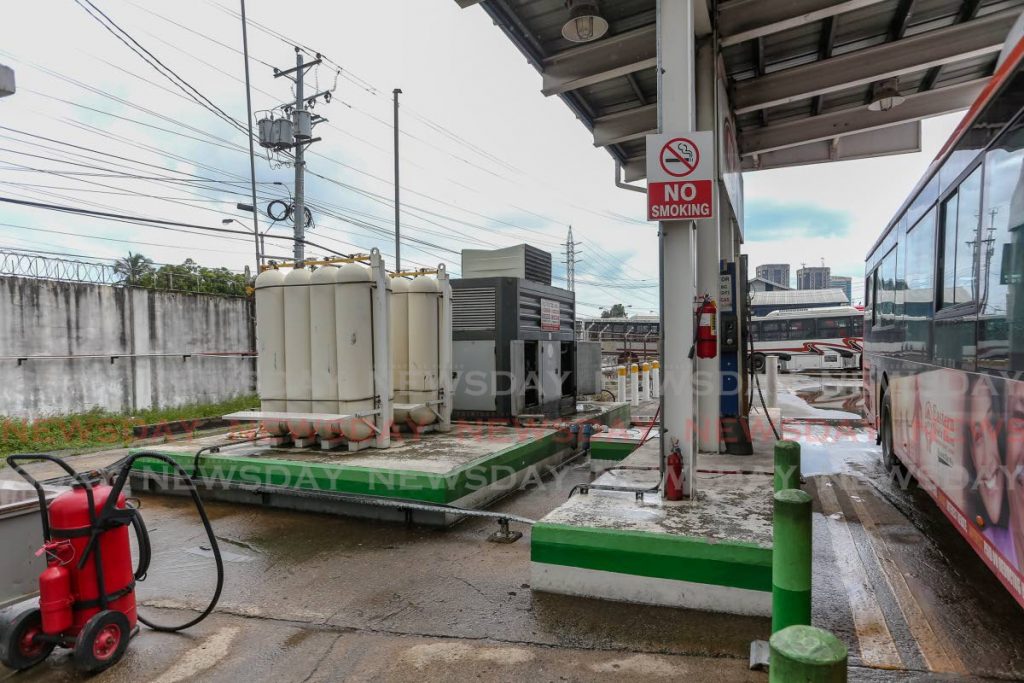
“You can’t wait six months for the money to be approved. That is their livelihood you are talking about,” he added.
“NGC moves too slow. When the guys crush their buses to get a new one the process takes too long to get compensated. It is Jurassic. You are leaving a man without a bus for too long. When changing a bus he wants to do it in the least amount of time,” Phillip added.
The association said they too had been bringing in omnibuses through Routes Auto. But covid19 hit them hard – so hard that their customers are now taking back their deposits because issues like freight and customs have prevented them from filling their orders.
Joel Brown, managing director of Routes Auto, added that the economic downturn also added to the difficulty in sales of the maxi taxis.
“The challenges we are facing are two-fold. Given the downturn because of covid19, the banks are not really financing. Because of the restrictions with the amount drivers could have carried, maxi taxi drivers are unable to qualify, simply on the basis of revenue generation of the vehicle.
“Plus, because people are not able to generate the kind of income they were accustomed to they would not look to buy a new vehicle, so the demand declined.”
Electric shocks to the CNG industry
One of the biggest shocks to the CNG industry could come from electric vehicles. While infrastructure and accessibility to electric vehicles are just beginning to develop in TT, for all intents and purposes, it may become a better option for motorists hoping to lessen their carbon footprint.
Electric cars’ zero pollution emissions, lower maintenance fees and overall smoother performance may outweigh the range anxiety, long charging times and overall higher price that comes with electric cars for some customers.
For most automobile manufacturers it is already the better option, as several car companies, including General Motors, Porsche, and Toyota have already made the commitment to move away from internal combustion engines (ICE) – which includes CNG vehicles – and manufacture fully electric vehicles by 2030.
“When you have newer options people would be less likely to gravitate to CNG,” said Visham Babwah, president of the Used Car Dealers Association. “There are several options for electric and electric hybrid vehicles, but the only new option that we have for CNG is the Honda City. And that would eventually be discontinued.”
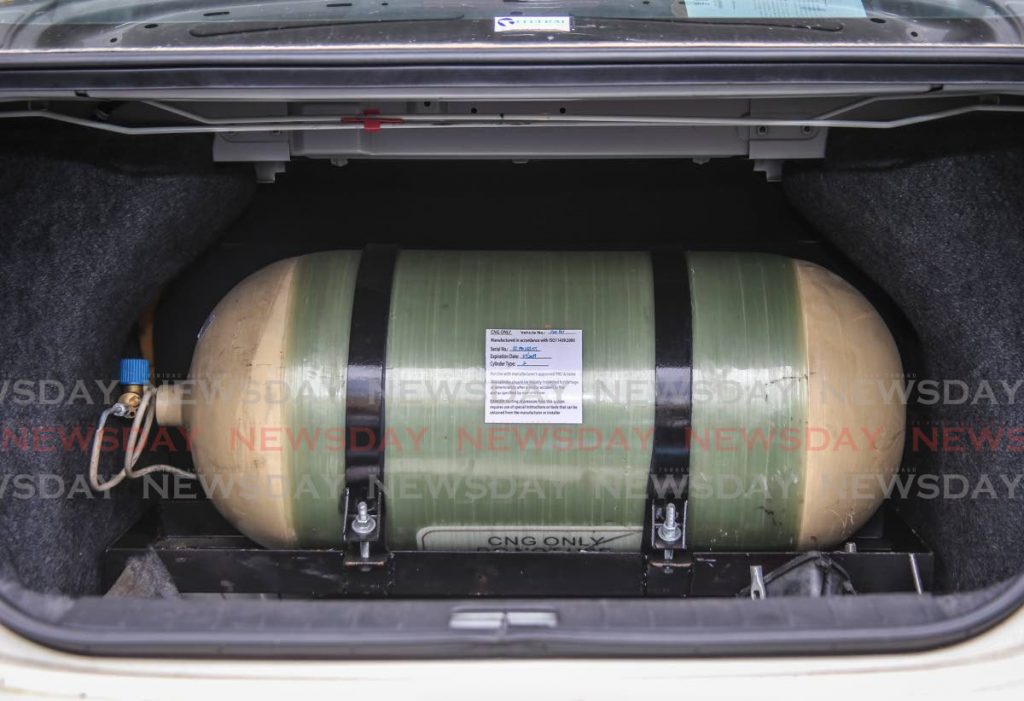
“Government has to focus on what are the international norms and trends with the manufacturers. And they are all going electric, so we have to focus on that.”
Lifestyle Motors chief operating officer Avinash Rampersad noted that a massive push is needed to make TT ready for electric vehicles, but distributors in TT would be integrated with international initiatives to convert from ICE to electric vehicles.
“Local dealers will have to re-look at their entire business model and infrastructure,” he said. “There is a significant investment to be made to facilities, such as an upgrade to the existing electrical capacity at the showrooms and service centres.”
He added that climate control battery workrooms and quarantine rooms for faulty batteries would also be needed, as well as an extensive retraining of technicians to be able to service vehicles.
He said these changes would be necessary to meet with international standards which would be required before dealers could have these cars locally.
Phillip also said the maxi taxi associations are already looking into electric vehicles as an alternative to their diesel guzzling vehicles, but said a lot has to be done infrastructurally before electric buses are a viable option.
“We are already talking to people outside and doing our research. We have information and videos on fully electric minibuses with hydrogen batteries but we cannot touch it because the infrastructure is not there as yet.”
“If we get electric vehicles we have to see how cost effective it would be. How much would it cost to charge every evening. The voltage and the time it would take to charge. In our business, time is money. If I can’t charge by my house and government put ports in places – that is time. I would have to sit down and wait for the vehicle to charge.”
Lau added that the associations would also have to be assured that electricity rates would not fluctuate if they were to make another switch.
“What would be our position if we buy these vehicles one year and the next year in the budget there is an increase in electricity rates?”
NGC CNG said while there could be competition from the electric car industry in the coming years, CNG provides motorists with existing vehicles an opportunity to lessen their carbon footprint without having to buy a brand new car.
“We’re talking about a CNG conversion which is very affordable for existing vehicles. No other technology can compete with that. If you are in the market to purchase a new or used additional vehicle, then other alternatives fuels can be considered.”
“NGC CNG applauds those who are thinking about transitioning away from fossil fuel use, to cleaner more efficient technologies, however the market for conversions to CNG is still a very lucrative one and it continues to expand as it does not depend on the importation of vehicles alone.”


Comments
"NGC says demand rising, users say no real savings: Has CNG drive run out of gas?"